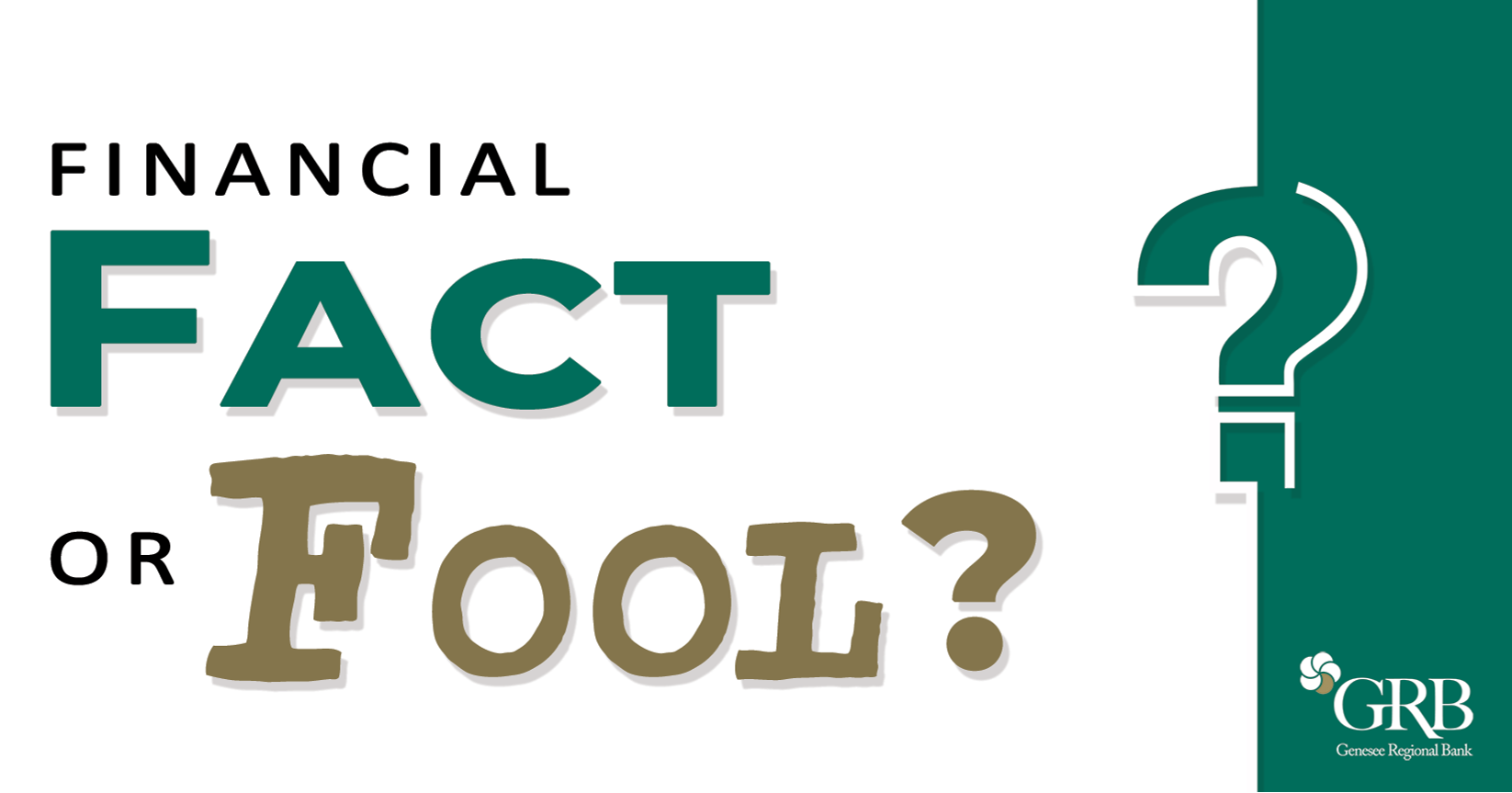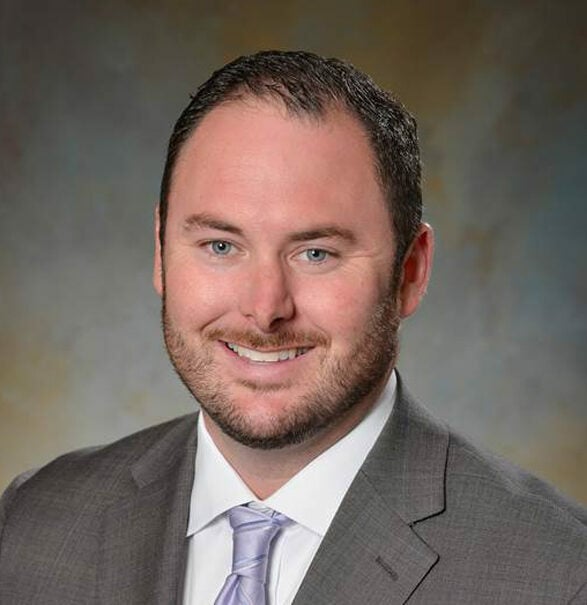Financial advice is everywhere, but much of it falls into the realm of rumor, half-truth and speculation.
When talking about your finances, it helps to identify your goals and establish a plan that brings those goals closer to fruition. If you need help, look for qualified individuals (accountants, legal counsel, financial planners, etc.) to provide guidance. But in the end, the money is yours and you need to be comfortable with your plan.
Although financial decisions are not one-size-fits-all, there are some best practices. In honor of April Fool’s Day – and the beginning of U.S. National Financial Literacy Month – see if you can tell which of these statements are financial fact or a financial fool’s errand.
Fool. Saving is definitely a situation where every little bit counts. Saving just 15% of pretax income (including your employer’s contribution) can go a long way towards maintaining your lifestyle in retirement. Use the GRBbank Online Banking My Budget feature to track your monthly expenses and set savings goals.
Fact. A budget is the first step to financial success. Without a budget, spending can easily begin to outpace earning and leave the user in debt. A budget provides a benchmark that can be used for ongoing planning and to help meet financial goals. Check out the My Budget tool on GRBbank Online Banking.Add Accordion Item
Fool. While a good credit score does provide potential borrowers with more options, there are programs for credit-challenged individuals. Many lenders, like GRB, also provide credit repair services to help borrowers take the right actions to raise their credit score. While it still may require some time and patience, home ownership can still become a reality.
Fool. While easy and convenient, person-to-person payment apps have a couple of shortcomings. First, they are not insured. Financial institutions insure accountholders for up to $250,000. If the app goes down and your money disappears, there is no recourse. Apps also do not offer interest on the money left in user accounts. Look for high-yield accounts, like GRB’s Reward Checking account, and make your money really work for you.
Fool. Having a credit card and making timely payments can help build a favorable credit history. But carrying a balance is not part of that equation. A balance is considered revolving debt and factors in to your credit utilization, which can actually hurt your score., and make that interest work for you.
Fact. Why? Keeping a zero balance on a card improves your credit utilization ratio (revolving credit used divided by revolving credit available). As long as you aren’t being charged significant fees for the card, it may be more beneficial to keep it active.
Fool. Traditionally, home mortgages and student loans have the lowest interest rates and may even be tax deductible. Paying off higher-interest debt or even using that extra money to save for retirement is often more financially sound. Not sure? Talk to a financial planner or accountant.
How did you do? If you need some additional information, go to our Financial Wellness page for resources and tips for saving, credit repair, home buying, and more.




